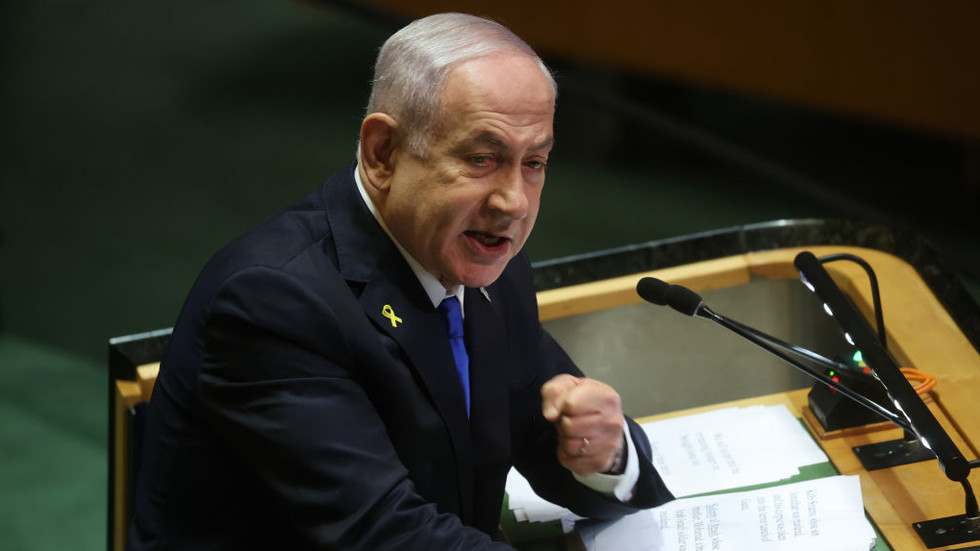Israeli Prime Minister Benjamin Netanyahu recently engaged in a heated exchange with French President Emmanuel Macron regarding the founding of Israel and the ongoing conflict in the region. Macron’s remarks, made during a cabinet meeting, highlighted that Israel’s establishment was the result of a UN decision, referring to the 1947 UN General Assembly resolution that called for the partition of Palestine into Jewish and Arab states. Macron suggested that Netanyahu should remember this historical context, particularly in light of Israel’s military actions against Hezbollah in Lebanon and the continued hostilities that have led to casualties among UN peacekeepers. This angle of Macron’s comments was interpreted as a critique of Netanyahu’s approach to the conflict and the government’s dismissal of international guidance and resolutions.
In response, Netanyahu firmly rejected Macron’s assertion, stating that Israel’s legitimacy was not solely derived from the UN resolution but rather founded on the sacrifices made by Israeli soldiers during the Arab-Israeli War of 1948. He emphasized that the establishment of the state stemmed from a victory achieved through conflict and the dedication of those who fought, many of whom had survived the Holocaust. This assertion underscored a narrative that places Israeli independence in the context of struggle and resilience rather than legal or diplomatic conventions. Following their exchange, Netanyahu reiterated his determination to continue military operations in Lebanon without a “unilateral ceasefire,” asserting Israel’s right to defend itself amidst escalating tensions with Hezbollah.
The tensions between Macron and Netanyahu were not isolated incidents; they had been brewing since Macron’s previous comments advocating for a cessation of Western arms exports to Israel. In his view, halting the flow of weaponry was necessary to compel Israel to rein in its military operations in Gaza and Lebanon. Macron expressed concern that Israel’s actions were jeopardizing the safety of UN peacekeepers operating in southern Lebanon, a force that includes around 700 French troops. This advocacy for arms embargo on Israel was met with vehement disapproval from Netanyahu, who described Macron’s suggestion as “shameful” and declared that Israel would prevail regardless of external military support.
Netanyahu’s response to Macron’s comments highlighted not only national pride but also a broader resistance to perceived foreign interference in Israeli military operations. He argued that Israel’s security concerns necessitate a robust defense posture against Hezbollah, which he accused of endangering UN peacekeepers by using them as human shields. This narrative reflects a longstanding Israeli stance on the need for self-defense in a region marked by hostility and ongoing threats. Netanyahu’s call for the UN peacekeepers to withdraw from Lebanon, given their precarious position, further illustrated his administration’s unwillingness to compromise on security matters.
Further complicating matters, Israel’s relationship with the UN took a contentious turn after the country declared UN Secretary-General Antonio Guterres persona non grata. This decision came in response to Guterres’ criticism of Israel’s actions in the region, particularly amidst Iran’s assaults on Israeli territories and the broader conflict dynamics. Israeli Foreign Minister Israel Katz accused Guterres of perpetuating anti-Israeli sentiments, which drew widespread backlash and led to over 100 UN member states expressing their support for the Secretary-General. This indicates a significant rift between Israel and parts of the international community, feeling increasingly alienated amid rising hostilities.
In a broader context, the exchange between Netanyahu and Macron is emblematic of the strained political and military environment in the Middle East. Israel’s unilateral actions have often clashed with international calls for restraint and dialogue, leading to a cycle of conflict that continues to challenge diplomatic relations. Macron’s calls for adherence to UN resolutions contrast starkly with Netanyahu’s insistence on national sovereignty and security. As both leaders navigate these complex issues, the repercussions of their disagreements are likely to have lasting effects not only on Israeli-French relations but also on the larger geopolitical landscape of the region. The ongoing military engagements, coupled with international political tensions, reflect the intricate interplay of history, ideology, and security that defines the current state of affairs in the Middle East.

